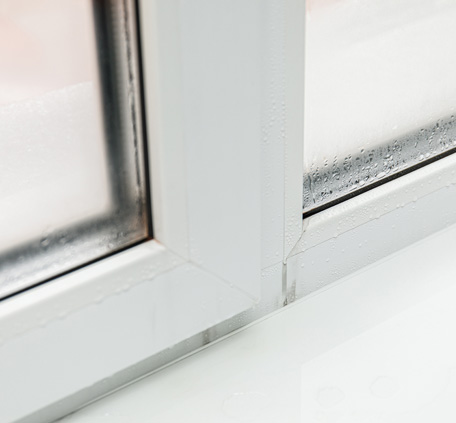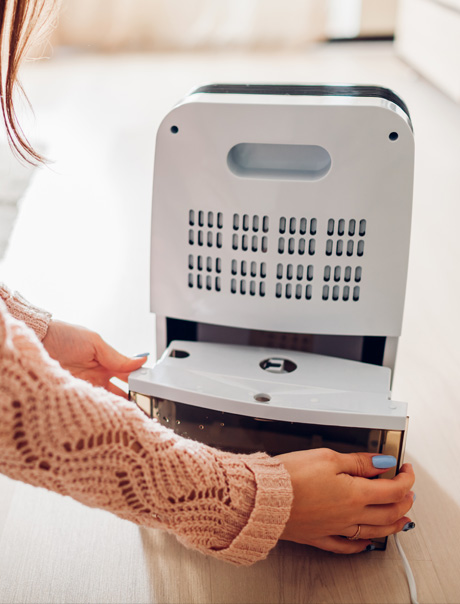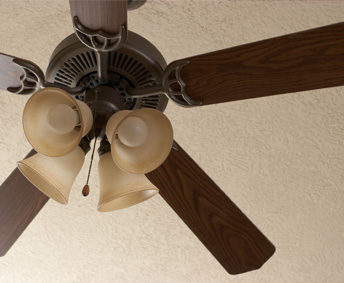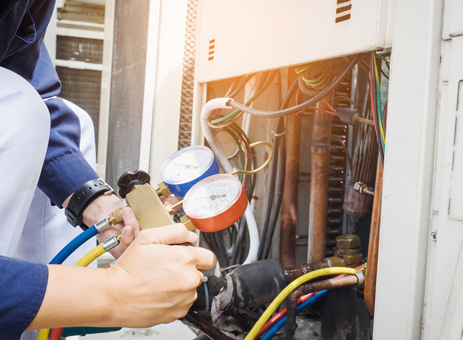Humidity is a huge source of discomfort for many homeowners. The main reason humidity is such a hassle for people is that it is caused when there is too much moisture in the air, and your body’s sweat cannot evaporate. Instead of cooling you as it is should, you perspiration acts as a sealant and keeps much of your body heat inside. Additionally, high humidity can cause the growth of mold and mildew, both of which can be harmful to your health. There are plenty of ways to lower the humidity, and SMO Energy has listed the most effective below:

Seal the leaks
Cracks in windows and doors are some of the easiest ways through which humidity-causing moisture can enter your home. To prevent this, seal cracks and seams around these features to keep air conditioning in the house and the heat and moisture outside. You should use weather-stripping and caulk for this because it will be even more effective at sealing out the unwanted humidity. Another source of humidity-causing moisture that homeowners tend to overlook can be the dryer vent in your home. If it is leaking, it is letting a lot of heat and humidity into the house. Have an HVAC specialist examine it to ensure that it is properly sealed.

Install exhaust fans or dehumidifiers
Daily activities such as cooking and showers can add a lot of humidity to your home. When engaging in one of these necessary tasks, use any vents you may have to remove the moisture buildup from your house. Running these vents will help prevent mold and keep humidity from your home. If you find that there is still excess moisture in your home even after running the exhaust fans, you may want to consider adding extra ventilation.
You could also consider purchasing a dehumidifier and placing it in areas of high humidity. Dehumidifiers reduce the level of humidity in your home, making it healthier and more comfortable. Lower humidity levels reduce mildew and mold growth. Furthermore, dehumidifiers also decrease the amount of dust, so your home will be cleaner. To top it all off, dehumidifiers also make air conditioners run more efficiently, lowering your maintenance costs.


Promote air flow in your home
Another solution is to add a standalone fan to provide better circulation into rooms that feel stuffy. Fans help by removing moisture from the skin and allowing your body to cool down.Remember, however, that added fans use extra energy, so be sure to only use fans in occupied rooms. If there is no one in a room, then there is no reason to be running a fan. Another item to keep in mind is the direction your fan is blowing. In the summer, your ceiling fan should be running counter-clockwise to draw cooler air up from the floor and distribute it throughout the room.

Maintain your HVAC system
Air conditioning systems will also help get rid of your home’s humidity. Your A/C doesn’t just cool your home, it also draws moisture out, thereby reducing humidity. Regular maintenance should be done on your AC to keep it in proper working order, however. Have a HVAC specialist come to inspect and repair it once a year. Regular maintenance will allow you to catch small issues before they become a problem, and it can help prolong the life of your unit and keep it at its peak performance level.
Humidity makes your home’s environment uncomfortable, but it isn’t a difficult thing to remedy. By sealing the leaks, installing exhaust fans, promoting air flow and maintaining your HVAC system, you can reduce the levels of moisture – and ultimately – the humidity in your home. For more advice on how to make your home more comfortable, schedule a free in-home energy consultation with one of our expert consultants.
